Most Britons would have no concerns about a royal same-sex marriage
The majority of the British public would not be concerned at all by a same-sex marriage in the Royal Family, new research by Ipsos for King’s College London has found. And, as Prince Harry’s marriage to Meghan Markle approaches, few are worried either by the prospect of a member of the Royal Family marrying someone from a different ethnic group or a divorcee. But more people would be very concerned about same-sex marriage in the Royal Family or a Royal child born outside marriage than if it happened among their own family and friends.
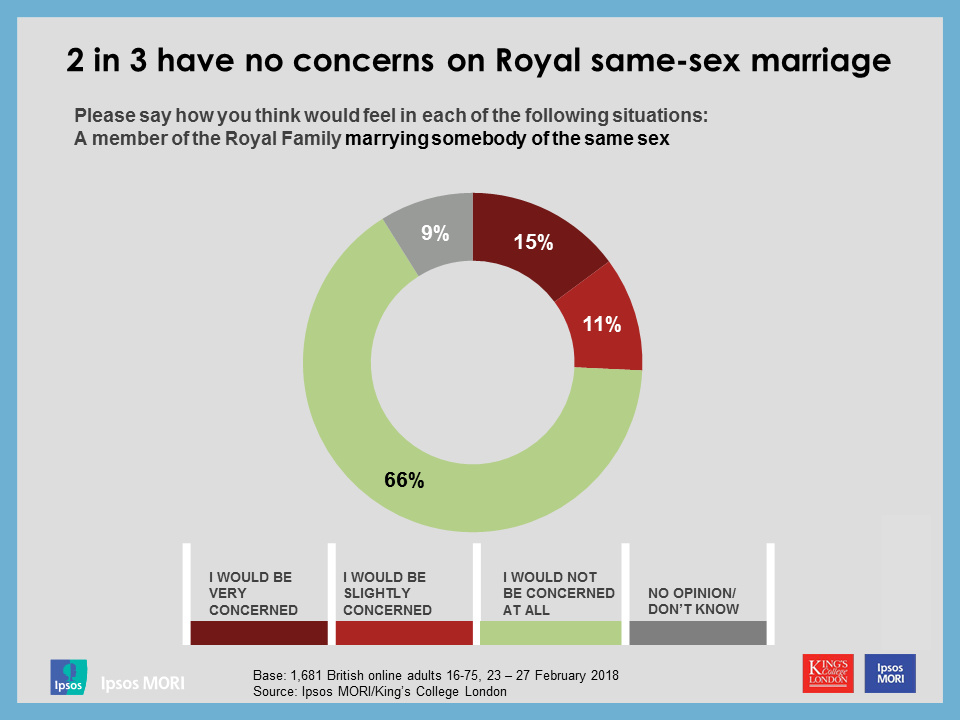
In the online poll of adults aged 16-75, conducted in February, a quarter said they would be “very concerned” (15%) or “slightly concerned” (11%) if a member of the Royal Family were to marry somebody of the same sex, but two-thirds (66%) “would not be concerned at all”. A significantly lower proportion, 10%, would be “very concerned” if a family member or close friend married somebody of the same sex, while 13% would be slightly concerned. Regarding same-sex marriage in general in Britain (which has been legal since 2014 except in Northern Ireland), around three-quarters (73%) have no objection to it, although 8% think it should be banned and a further 13% disapprove of it although they would not ban it.
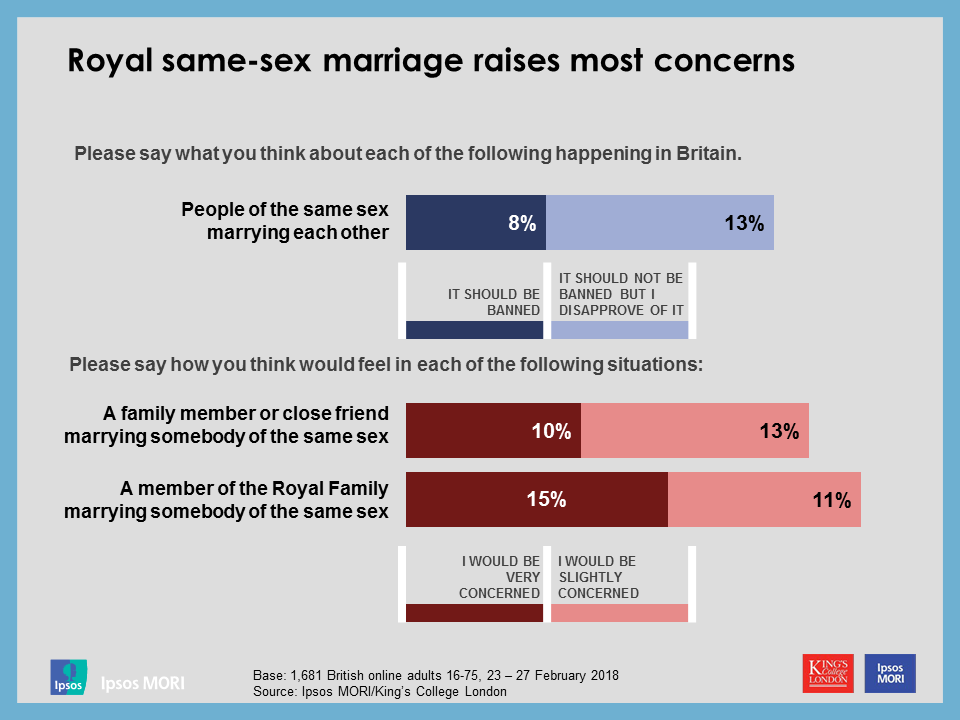
There are substantial differences in attitudes to same-sex marriage by age and gender. Men are almost twice as likely as women (11% against 6%) to say that same-sex marriage should be banned altogether, and a further 17% of men disapprove of it while only 9% of women do so. A third of 55-74 year olds (32%) would either ban it or disapprove of it, while barely half that number (18%) of younger adults say the same.
There is much less objection to people of different ethnic groups or religions marrying, or to people who have been divorced marrying again - 6% would ban or disapprove of marriage between people of different races of ethnic groups, 5% of marriage between people of different religions, and 4% of people who have been previously married and divorced marrying again; at least nine in ten of those interviewed have no objection to each of these.
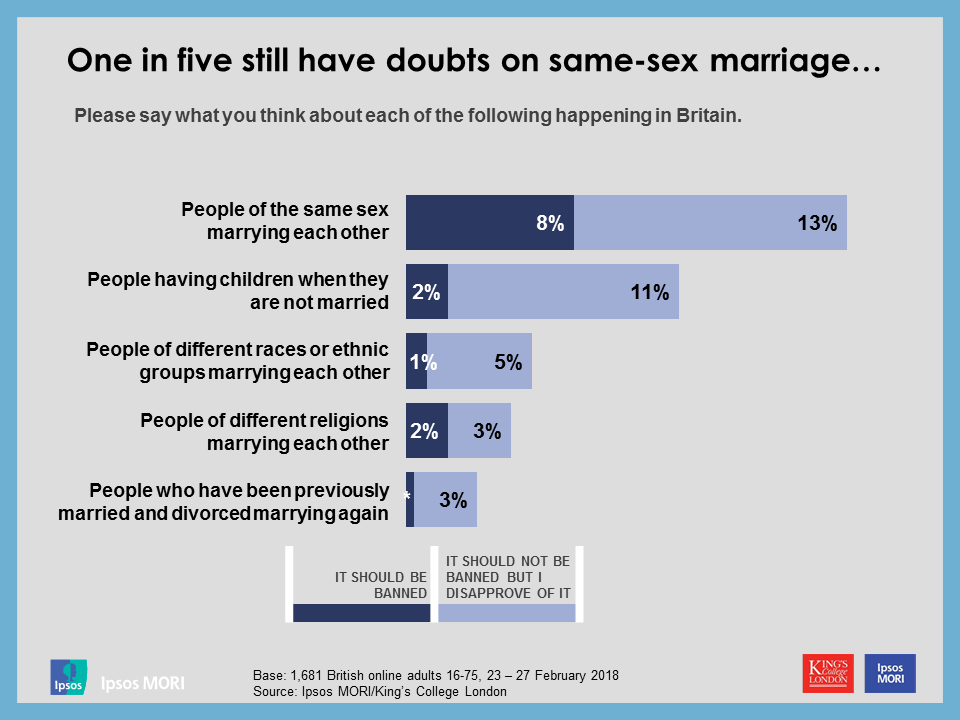
However, all would cause some concern if a family member, close friend or member of the Royal Family was involved. One person in eight would be at least slightly concerned if a family member or close friend married somebody from a different race or ethnic group (13%), and a similar number would be concerned if a member of the Royal Family did so (12%), although few would be “very concerned” in either case. Likewise, 14% would be concerned if a family member or close friend married somebody of a different religion, as would 15% were a Royal to do so. Least concern was expressed about previously married-and-divorced people remarrying, which would concern 9% if it involved a close friend or relative and 10% if a member of the Royal Family.
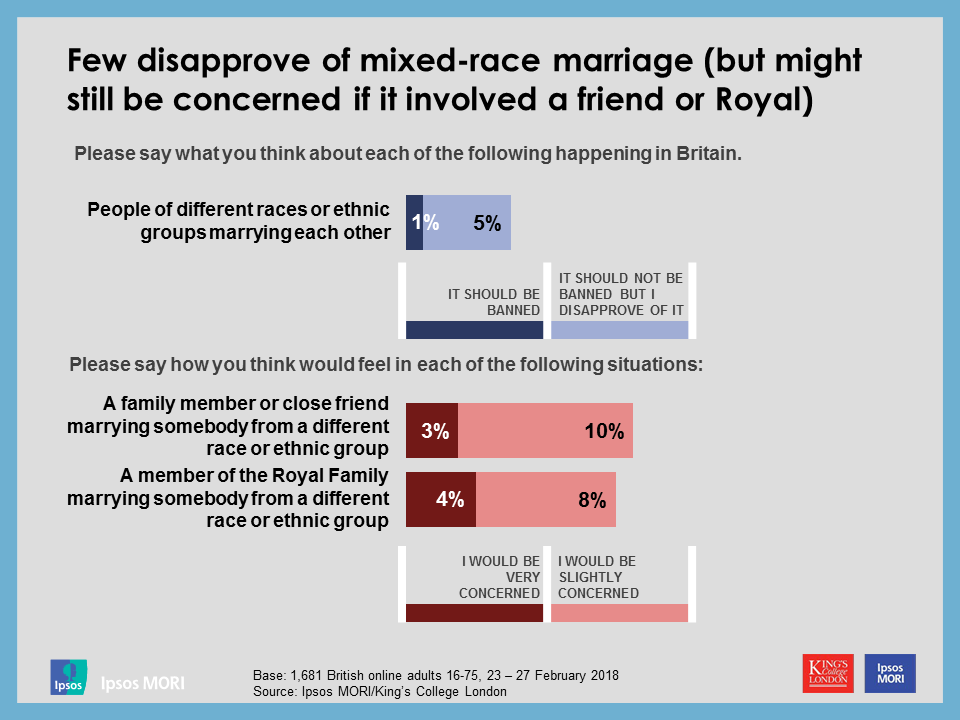
There is a bigger distinction between attitudes to the Royal Family and everybody else when it comes to having children outside marriage. Although the numbers are small, twice as many would be “very concerned” if an unmarried Royal Family member had a child than if a member of their own family or a close friend did so (7% compared to 3%); and one in five (21%) would be at least slightly concerned by a Royal child outside marriage even though only 12% say that in general they disapprove of people having children when not married or think it should be banned. People also recognise this distinction in principle: more of the public agree (40%) than disagree (24%) that “In return for the privileges they receive, we are right to set stricter standards of behaviour for the Royal Family than we do for ourselves”.
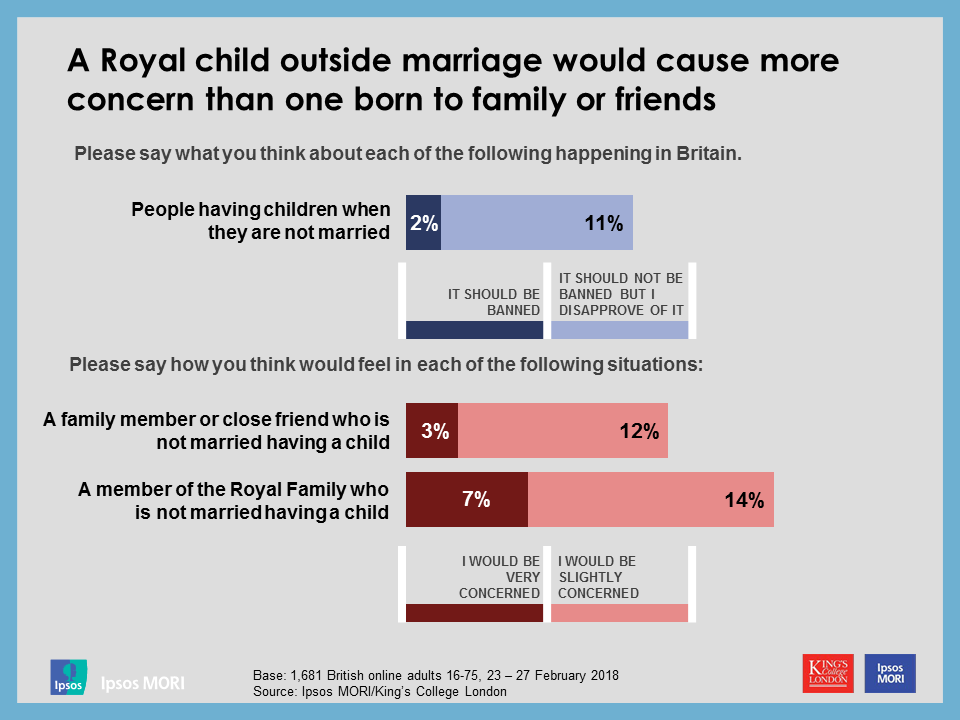
Professor Roger Mortimore said:
The findings of this poll show what a complete change there has been in British public attitudes during the reign of the current Queen. Even allowing for the fact that our poll did not include those aged over 75, who we would expect to have the most conservative attitudes, the number who said they were concerned about these issues was very low. In the 1970s only one person in six thought same-sex marriage should be legal, and as late as the 1990s half the public believed that homosexual sex was always wrong. Many think that in the 1950s Princess Margaret was prevented from marrying a man who had previously been divorced because the public would have disapproved. Now most people have no objection at all, even to a member of the Royal Family marrying somebody of the same sex.
Nevertheless, the public holds the Royal Family to stricter standards than they hold themselves. Although the majority have no objections, a significantly bigger minority would be concerned by a Royal same-sex marriage or a Royal child born outside marriage than if it were their own family or friends involved.
Technical Note
Interviews were conducted online by Ipsos among a representative quota sample of 1,681 adults aged 16-75 in the United Kingdom between 23rd and 27th February 2018. Data have been weighted to the known profile of the British population in this age range. Further details can be found at www.ipsos-mori.com.
The survey was conducted for the Polling Club at King’s College London. The Polling Club, run by Professor Roger Mortimore, allows students to increase their knowledge and understanding of survey research and public opinion by helping to design and analyse the results from a poll carried out by Ipsos. For further details about the poll or about King’s College Polling Club, contact Professor Mortimore.




